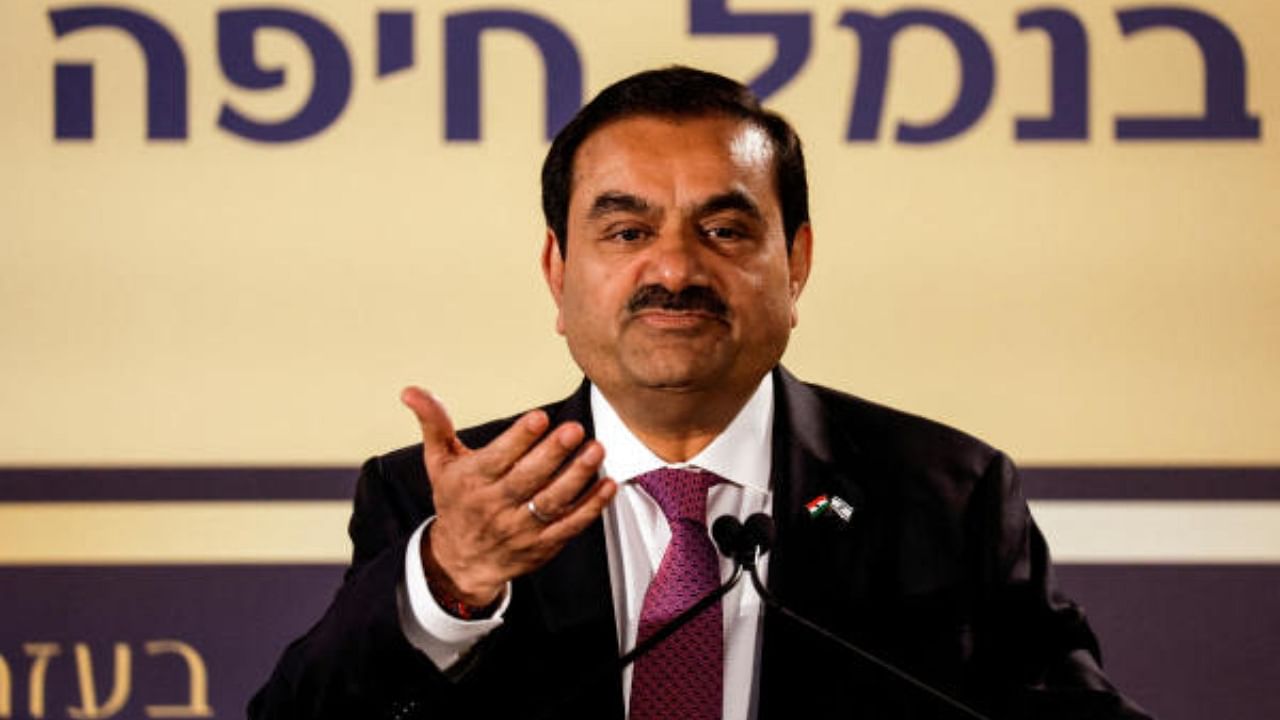
Gautam Adani.
Credit: Reuters File Photo
New Delhi: A year after a damning report by a US short seller ripped through his apples-to-airport conglomerate, billionaire Gautam Adani on Thursday said the "trials and tribulations" of the past year have made the Adani group stronger as it continued on growth path, improving asset base and launching key projects, including the Dharavi redevelopment.
In a column in a leading newspaper, he said the Adani group raised Rs 40,000 crore of equity -- equal to debt repayment for the next two years -- through stake sales in some firms, repaid Rs 17,500 crore of margin-linked financing, and trimmed debt.
Sustained focus on operations yielded the highest-ever quarterly profit in the second quarter of current fiscal, he said.
Most of the listed group companies have recouped losses induced by the Hindenburg report.
"We remained committed to maintaining our growth momentum. The Group continued its investments, evidenced by our asset base growth to Rs 4.5 lakh crore," he said.
"This period (of last one year) marked the launch of several key projects, including the world's largest renewable energy generation site in Khavda (in Gujarat), a new copper smelter, a green hydrogen ecosystem, and the long-awaited redevelopment of Dharavi (slums in Mumbai)."
Adani termed Hindenburg Research's charge of fraud and stock market manipulation as 'lies' and a 'compilation' of 'old and dead allegations' that his 'detractors had been trying to resurrect'.
"Fatuously self-styled as a research report'," Hindenburg report "was a cunningly crafted set of selective half-truths sourced from disclosed and publicly available information," he said.
He expected the point-by-point rebuttal of the allegations put by his group to quickly put an end to it but the skinned as much as USD 150 billion in market value of his conglomerates listed companies at the lowest point.
Adani was ranked world's second richest at the start of 2023 but slipped out of top 20.
"The lies against us were corrosive enough to substantially erode the market cap of our portfolio as, typically, capital markets are more emotional than rational," he said.
"What pained me even more is that thousands of small investors lost their savings," he said.
Had detractors' plan fully succeeded, the domino effect could have crippled many critical infrastructure assets, ranging from seaports and airports to the power supply chain -- a catastrophic situation for any country, he said.
"However, thanks to our solid assets, the robustness of our operations and the high quality of our disclosures, the more informed financial community, including lenders and rating agencies, refused to be swayed by the swirling lies and stood solidly with us," he said.
Though Adani had to scrap a Rs 20,000 crore public issue at his flagship firm, Adani Enterprises.
"We had no precedent path to handle this situation," he said, adding that the group focused on transparently outlining the facts and narrating its side of the story to expose the motives of those who attacked it.
This led to a declining influence of negative campaigns against the Group, he said.
"A testament to the change in public perception is the significant growth in our shareholder base, a primary target of the follow-on public offering (in Adani Enterprises Ltd). Over this challenging year, our shareholder base expanded by 43 per cent, reaching nearly 70 lakh."
On the lessons learnt, Adani, who is now ranked No 14 on the world billionaire list, said in hindsight, the crisis uncovered a fundamental weakness -- the group did not pay enough attention to its outreach mechanisms.
"Few outside the infrastructure finance community knew of the size, scale and quality of what the Adani Group had done or was doing. We had all along naively believed that all our non-financial stakeholders too knew us and the truth about us -- that our financials were robust, that our governance was impeccable, that our roadmap to growth was measured, and that we play an important role in building India's critical infrastructure," he said.
This experience underscored the necessity of engaging effectively with non-financial stakeholders.
"We had failed to proactively counter the twisted narratives of our debt levels and unfounded accusations of political partisanship, resulting in the spread of distorted perceptions."
"The fact is that, for our class of transport and utility companies, we have one of the lowest debt-EBITDA ratios. (For the half year ending September 2023, this was 2.5x). Further, with an infrastructure business footprint in 23 Indian states governed by political parties across the spectrum, we are truly politically agnostic," he said.
He concluded the piece by saying 'the trials and tribulations of the past year have taught us valuable lessons, made us stronger and reaffirmed our faith in Indian institutions."
This 'devious attack' on the group and its strong countermeasures will no doubt become a case study, he said, adding that he was sharing his thoughts as similar attacks could happen on other Indian groups as well in future.
"I am under no illusions that this is the end of such attacks. I believe we have emerged even stronger from this experience and even more unwavering in our resolve to continue our humble contribution to the India growth story," he said.